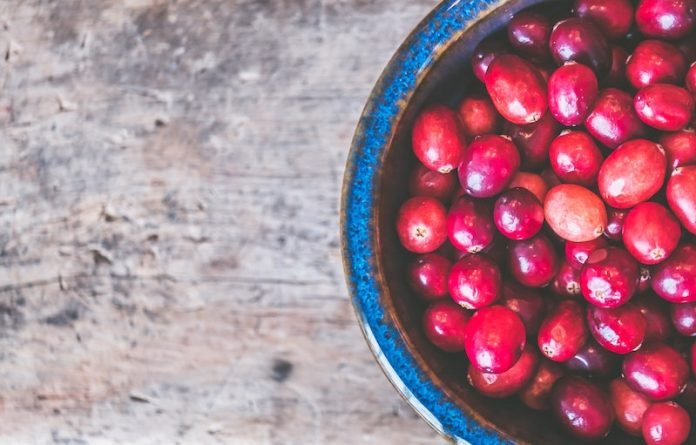
Scientists from University Düsseldorf in Germany have found that daily consumption of cranberries can improve blood vessel and heart health in healthy men.
Cranberry is a type of evergreen shrub that grows in the northeastern and north-central parts of the United States.
Historically, cranberry fruits or leaves have been used to treat bladder, stomach, and liver disorders, as well as diabetes, wounds, and other conditions.
Today, cranberry is most commonly promoted for its potential to prevent urinary tract infections (UTIs). It is a rich source of polyphenols, including flavan-3-ols, anthocyanins, and flavonols.
In fact, it contains more polyphenols per serving compared to other commonly consumed fruits such as apples, cherries, blueberries, blackberries, grapes, and strawberries.
Previous research has found that drinking cranberry juice can offer heart health benefits, as anthocyanins in cranberry juice may help reduce hardening of the arteries.
Several studies have also found that cranberry juice may help reduce the risk of heart disease by improving cholesterol levels and lowering blood pressure.
However, it is unknown whether daily consumption of whole cranberries will have sustained benefits on heart health in healthy people.
To test this, the team examined the health benefits of daily consumption of freeze-dried whole cranberries in healthy men.
They tested 45 healthy men who were assigned to one-month daily consumption of either cranberry powder or a control powder.
The researchers tested several biomarkers for blood vessel and heart health, such as blood pressure, heart rate, blood fat, and blood sugar, at the beginning and at 2 hours on day 1 and after 1 month.
They found that eating cranberries strongly increased blood vessel health at 2 hours and 1 month. The team also found cranberry (poly)phenol metabolites in the participants’ plasma and urine.
A further analysis showed that specific metabolites strongly affected blood vessel functions 2 hours after eating cranberries, while others boosted blood vessel health when the participants ate cranberries for one month.
Based on the results, the team suggests that eating whole cranberry powder every day can provide short-term and long-term health benefits to blood functions in healthy men.
These benefits are linked to specific metabolite levels in the blood.
However, the study has limitations in that it only tested younger healthy men, and thus the findings may not be easily generalized to the wider population and people at a higher risk of heart disease.
Additionally, the cranberry intervention only lasted for 1 month, and the long-term benefits of eating the fruit daily are still unclear, highlighting the need for further research.
There are many ways to protect your heart and lower your risk of heart disease, some of which include:
Eating a healthy diet: A diet that is rich in fruits, vegetables, whole grains, and lean proteins can help reduce your risk of heart disease.
Regular exercise: Exercise is important for maintaining heart health. Aim for at least 30 minutes of moderate-intensity exercise most days of the week.
Maintaining a healthy weight: Being overweight or obese can increase your risk of heart disease, so it’s important to maintain a healthy weight through a healthy diet and exercise.
Not smoking: Smoking is a major risk factor for heart disease, so quitting smoking or not starting in the first place is important for protecting your heart.
Managing stress: Stress can have a negative impact on heart health, so it’s important to find ways to manage stress, such as through relaxation techniques, exercise, or talking with a counselor.
Getting enough sleep: Getting enough sleep is important for overall health, including heart health. Aim for 7-8 hours of sleep each night.
Limiting alcohol intake: Drinking too much alcohol can increase your blood pressure and contribute to other risk factors for heart disease. Limiting alcohol intake to moderate levels (1 drink per day for women, 2 drinks per day for men) can help protect your heart.
By incorporating these healthy habits into your lifestyle, you can protect your heart and lower your risk of heart disease.
If you care about heart disease, please read studies about chronic itch linked to heart disease, and drinking coffee this way may prevent heart disease and stroke.
For more information about heart health, please see recent studies about how magnesium helps protect your heart rhythm, and results showing the best time to take vitamins to prevent heart disease.
The research is published in Food & Function and was conducted by Ana Rodriguez-Mateos et al.
Copyright © 2023 Knowridge Science Report. All rights reserved.



